World Antimicrobial Awareness Week (WAAW) takes place this week, 18-24th November 2020, and aims to increase awareness of global antimicrobial resistance (AMR) and to encourage best practices to avoid further emergence and spread of drug-resistant microbes. Cefas’ lead on antimicrobial resistance in seafood, Dr David Verner-Jeffreys, took this opportunity to highlight how the Cefas team and colleagues across government and internationally are working to tackle this global challenge.
The challenge
Antimicrobial resistance is one of the most profound challenges facing humankind, as current medicines become less effective or do not work at all against some disease-causing microbes. Antibiotics are widely used in animal production in some parts of the world, including agriculture and aquaculture, so their reduced effectiveness is also a significant risk to providing enough food for the growing global population.
AMR occurs in microbial pathogens, including bacteria, when they change and no longer respond to medicines such as antibiotics, making diseases in animals and humans harder to treat and increasing the risk of disease and death. Overuse and inappropriate use of antibiotics drives the increased development of resistance.
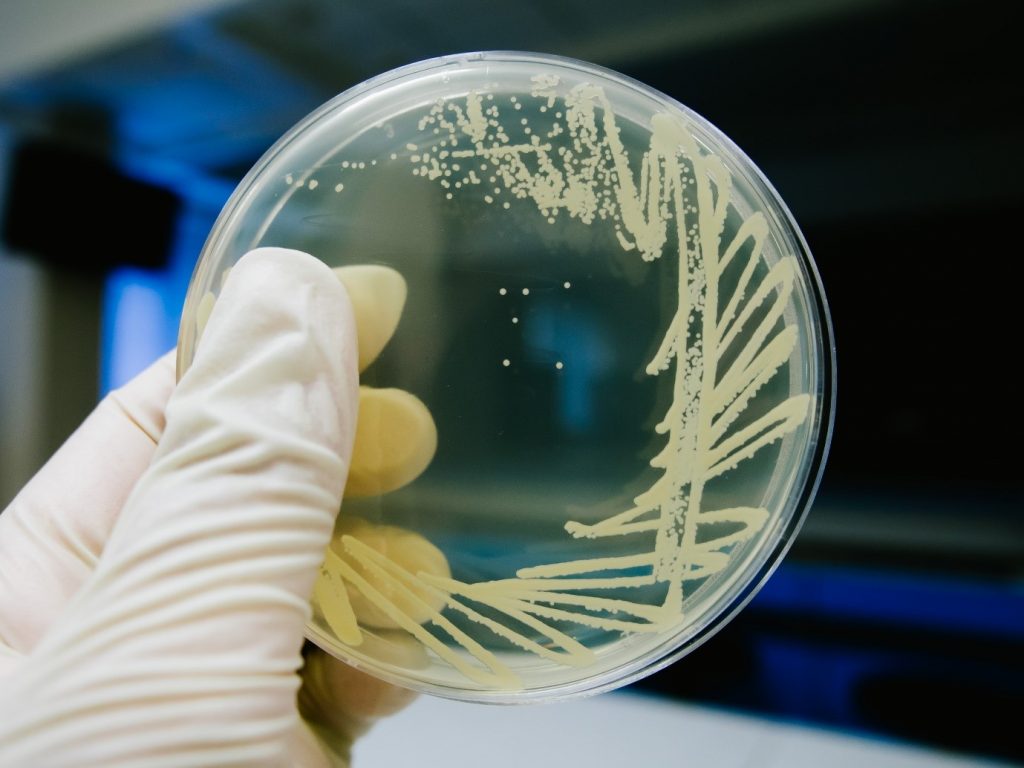
UK government agencies designated as UK United Nations Reference Centre for AMR
The UK is committed to tackling the threat of AMR nationally, through its national action plan on AMR, and internationally, through a diversity of initiatives and leadership roles as outlined in its 20 year vision for AMR.
In April 2019 Cefas, and fellow UK government agencies, the Animal and Plant Health Agency (APHA) and the Veterinary Medicines Directorate (VMD) together were designated as the UK Food and Agriculture Organisation of the United Nations (FAO) Reference Centre for AMR, UK. Our colleague at APHA, Rod Card explains more in his blog.
The Reference Centre provides independent technical and scientific advice to safeguard animal and human health from the threat of antimicrobial resistance. Our mission is to provide world leading scientific and policy expertise within the global community to tackle antimicrobial resistance in terrestrial and aquatic animals and their environments.
Through the Centre, APHA, Cefas and VMD combine and complement their expertise in in antimicrobial resistance in bacteria, from terrestrial animals, environment and food (APHA); aquatic animals, such as fish and shellfish, and environment (Cefas); and in monitoring antimicrobial usage (AMU) and development of policy surrounding AMR and AMU (VMD). This expertise will be made available to Low- and Middle-Income Countries (LMICs) through the Reference Centre, as prioritised by one of our funders, the Fleming Fund.
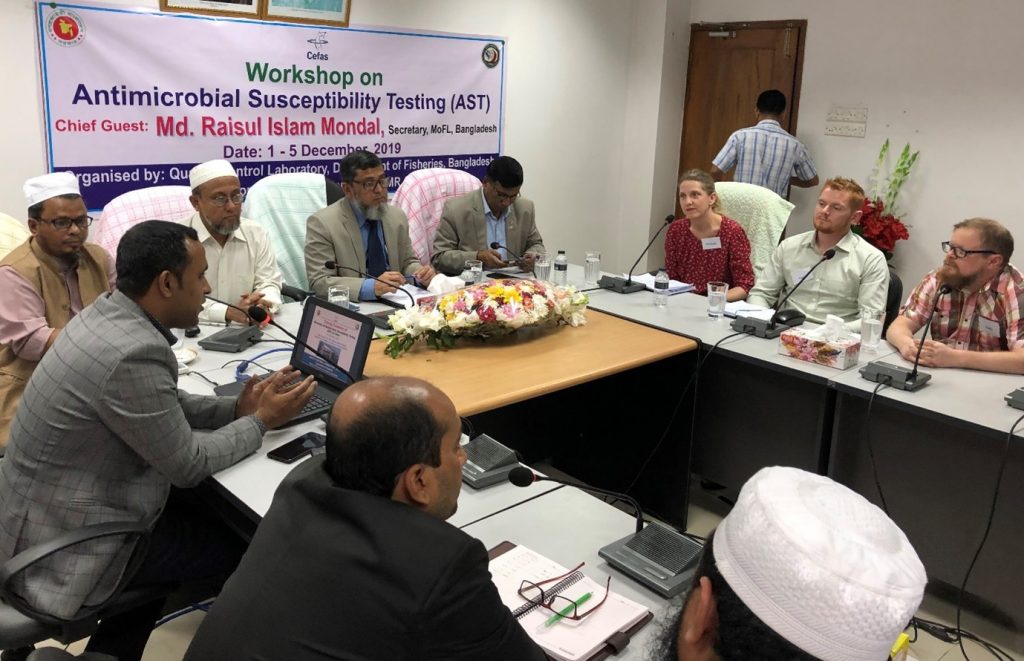
FAO Reference Centre Activity
Since the Centre’s launch, scientists from all three organisations have been involved in a variety of activities both in the UK and internationally, including delivery of overseas visits to provide technical and scientific training sessions, and policy and governance support. So far, we have partnered with ten countries: Bangladesh, Ghana, Nigeria, Laos, Philippines, Ethiopia, The Gambia, Qatar, Oman, and United Arab Emirates. Colleagues have also contributed to a range of national and international conferences and workshops and delivered a substantial coordinated programme of capacity development in Ghana and Bangladesh, amongst other activities.
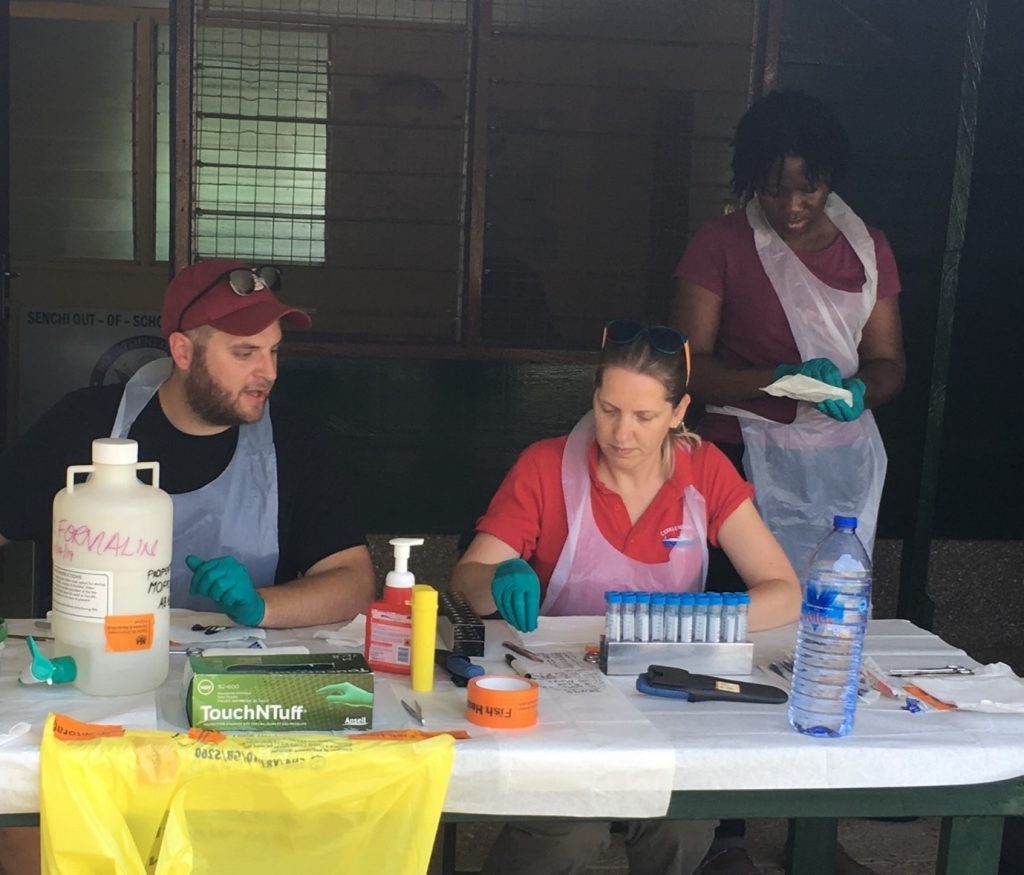
Ghana
After initial meetings with Ghanaian partners in November 2018, we undertook a scoping visit to Ghana in March 2019, consulting with key stakeholders, including the Ghanaian Chief Veterinary Officer, to agree what to focus efforts on. During two more visits in July and September 2019, Cefas and APHA provided laboratory-based training for the isolation, identification, and antimicrobial susceptibility testing of bacteria from aquaculture and poultry samples, which will give information on the current extent of AMR in those food products. Colleagues at VMD also worked with Ghanaian authorities to develop its antibiotics residues surveillance programme through a review of current capability and delivering training in analysis and interpretation of antibiotic sales data. APHA’s previous blog describes in more detail the work in Ghana.
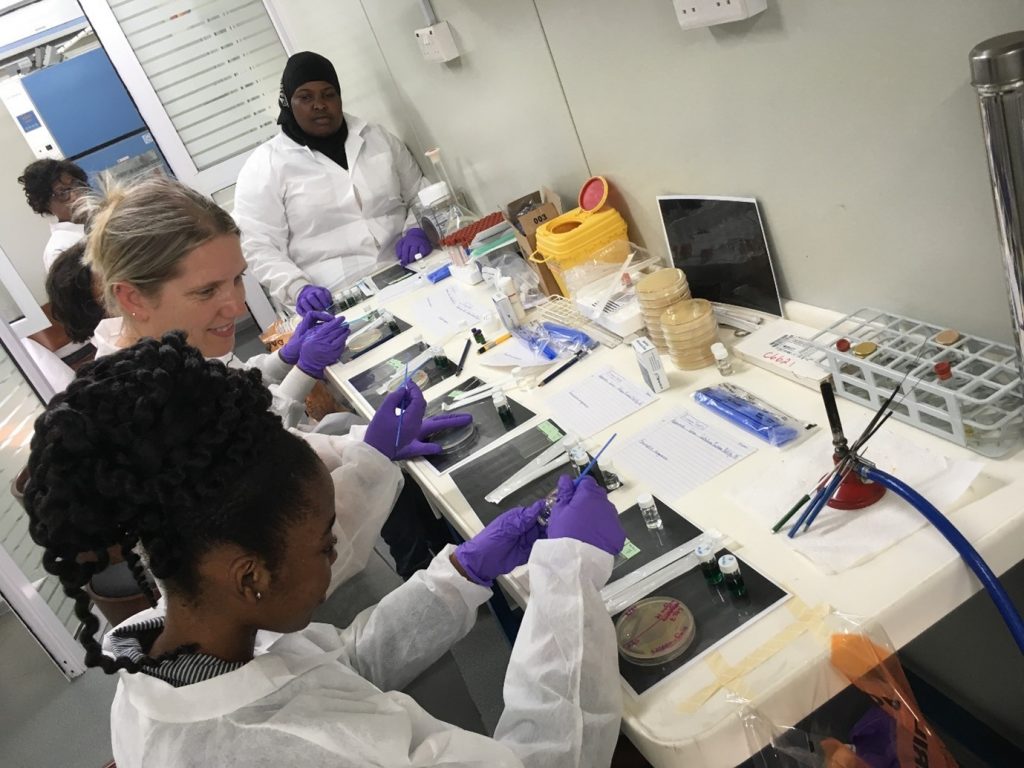
Bangladesh
We visited Bangladesh for a workshop in February 2019, which provided insight to plan work with partners to support training and capacity building in the agriculture and aquaculture sectors. In coordination with Bangladesh partners, Mott MacDonald, and the FAO, we agreed a tailored work programme.
During three further visits in October, November, and December 2019 we worked with partners to train staff from the various animal health and aquaculture laboratories selected for support through the Fleming Fund country grant. To expand the knowledge and expertise base further, we also provided training to staff from three further government laboratories that are important for AMR surveillance. Participation of staff from different laboratories in a single training course had the added benefit of fostering closer links between organisations. This will help strengthen networks and encourage a coordinated approach to tackle AMR in Bangladesh.
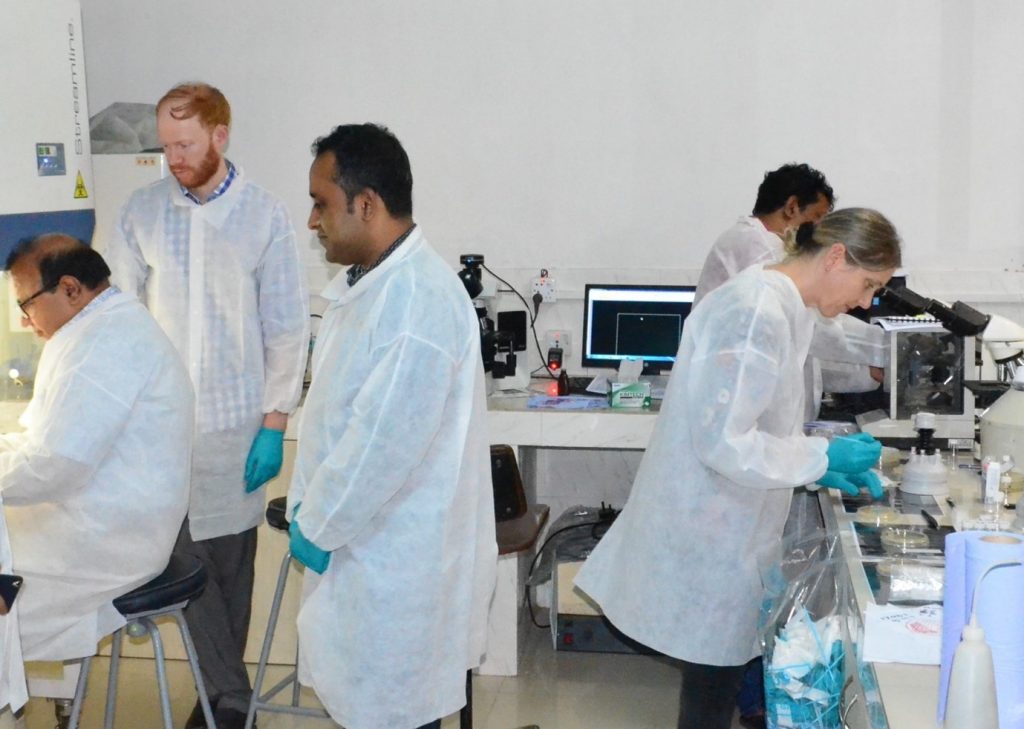
David Verner-Jeffreys explains, “The three UK Government agencies that make up the FAO Reference Centre for AMR, together offer a range of expertise in aspects of antimicrobial use and antimicrobial resistance to support countries to safeguard animal and human health from the threat of antimicrobial resistance. We have partnered with so many enthusiastic professionals in various countries who have worked with us to develop in-country responses to the challenge of AMR”.
Impact of Covid-19 on the Reference Centre’s activities
Given the current travel restrictions due to coronavirus, the Reference Centre is making increased use of remote support via on-line collaboration tools, development of e-learning packages, and through joint projects to support research capacity development. The coronavirus pandemic has shown the importance of planning to respond to emerging disease threats, including AMR. When this pandemic finally recedes, the threat of AMR will still be with us, and alongside the challenges of food security and climate change, is one of the biggest issues faced by society. We look forward to recommencing country visits and hosting visitors when restrictions ease.
Acknowledgements
The FAO Reference Centre for AMR, UK, would like to acknowledge our funding partners, The Fleming Fund and the Department for Environment, Food and Rural Affairs (Defra). We would also like to thank all our country partners and institutions for being such welcoming hosts and for their cooperation and leadership in supporting all our activities.